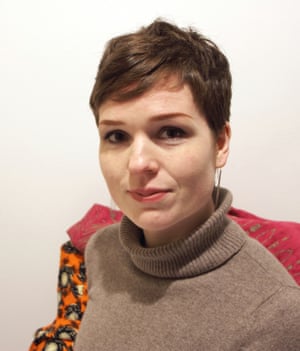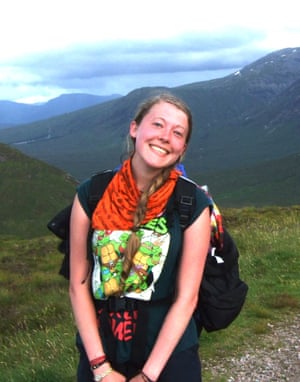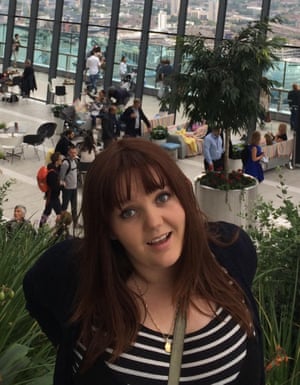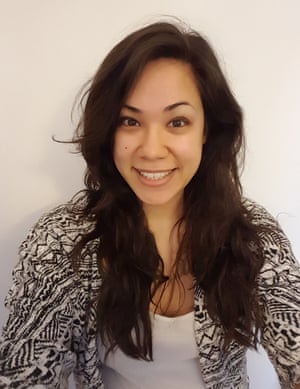To study nursing takes a certain kind of student. Ian Noonan, head of the mental health nursing department at King’s College London, draws an analogy: “A lot of people give up their seat for someone else on the tube,” he says, “having made a decision on whether that person is less able than them. But then many people don’t look. You might look down at your paper or your electronic device instead. We can teach you how to decide whether someone is able or not – but we can’t teach you that motivation to look up and to notice.”
Noonan himself trained as a musician before mental health nursing, and says that students who move to nursing from other disciplines often bring something extra to the job. “A broader world view helps in understanding the patient’s own values and why they might be different to their own. It’s about ethical perspectives as well as empirical evidence. Even geography, theology, philosophy students – subjects that don’t seen so connected to nursing – can have a lot to offer,” he says.
So what motivates students to change course?
‘Everyone on my course has found our attitudes have changed’
Freya Sewell, 30, is a second-year mental health nursing student at Edinburgh Napier University

“Without our health we can’t fulfil what we can do. Whether mental health or physical health – it’s all part of the same person. That’s why I wanted to become a mental health nurse.
“I’m 30 now, but I wouldn’t have wanted to do this at 18 or 19. I did not know as much then about relationships between people and how they can affect all of us. Everyone on my course has found our attitudes have changed – and we come from a huge range of ages and backgrounds.
“I come from a family of artists and academics and my degree was in fine arts at Edinburgh, where I have stayed ever since. Course fees are still paid for here and you get a bursary; without that I wouldn’t be able to do the course. I’m also a support worker for people with learning disabilities. Most other nursing students do bank nursing [providing temporary cover], but I like working in the community and want to do so when I’m qualified.”
‘I wasn’t sure I had it in me to be a nurse’
Rose Abell, 27, is studying for a master’s in nursing studies at Glasgow Caledonian University

“I always wanted to be a nurse, but my granddad, who brought me up, didn’t think it was prestigious enough. I decided to go into international relations instead. I first did a degree in economics and Chinese at Westminster and then an MA in international economics.
“I got a job with a major drinks company, but realised I didn’t like business. Then I worked at the EU in Brussels as a secretary, but I didn’t like that at all either.
“By this time, my granddad had been in hospital and changed his mind about nursing after being cared for by nurses. But I wasn’t sure I had it in me to be a nurse. A lot of nursing is about being an understanding person and I wasn’t sure I could always do and say the right thing.
“But while doing my MA in Berlin I worked part-time in a nursing home. I realised then that I could talk to people about what is important to them. I am now doing a master’s in nursing studies at Glasgow Caledonian. The course prepares you if you want to go on and do a PhD, but I want to be a nurse.”
‘I wanted a more definite career path’
Imogen Dobie, 24, studies mental health nursing at City University

“My school had a rather old-fashioned view of nursing, so if anything we were encouraged to consider medicine. At first, I considered becoming a clinical psychologist. I did a psychology PGDip after my first degree in medical neuroscience at Sussex University. But I wanted a more definite career path – with nursing you know you’re going to be a nurse.
“I’m now a final-year mental health nursing student at City University. I like the mix of things mental health nurses can do with service users, and that it is less biologically focused than medicine. But it is a real shame that our skills can’t be transferred into jobs in other countries, when general nursing can be.
“I moved to London to do the course. You can train and work with such a diverse population. And whatever mental health service you want to work in, it’s here.
“There is a sense that our role is being subsumed by some other professions. Occupational therapists do a lot of the therapeutic work around daily living skills, psychologists do the more in-depth, one-to-one work with service users. If the incoming role of nursing associates can administer medicines, then I’m not sure what we’ll be left with.
“My mum was a mental health nurse in the 1980s and tells me that I don’t have to be ‘just a nurse’, that I can go into management or research. But I don’t want us all to be pushed behind the scenes.”
‘There’s such a buzz in A and E’
Aimee Wong, 26, studies adult nursing at King’s College London

“I did a degree in geography at Manchester because I liked the subject. I wasn’t sure about my career options; I thought I might be a teacher. I worked for a computing company in an office role for a year and didn’t like it, it wasn’t sociable. Then I went travelling for a couple of years and taught English in Taiwan. Whilst there I did some voluntary work with patients who have HIV.
“When I came back to London, I needed a job and Lewisham Hospital was doing a mass recruitment of healthcare assistants. I requested a job in accident and emergency because I thought it would be exciting. I loved it: there’s such a buzz in A and E. There is always something going on.
“I worked there for a year and it really opened my eyes to what nurses can do. They do a lot of personal care, but there is a huge overlap between medicine and nursing. Now I’m doing a pre-registration degree in adult nursing and want to go on to be an advanced practitioner.
“The course placements are really varied. I’ve been on a cardiac surgery ward and an acute medical ward. I really enjoyed that, even though it was working with really unwell people, who often died. When that happened, it brought the whole team together. You don’t get that with other jobs.”
Keep up with the latest on Guardian Students: follow us on Twitter at @GdnStudents – and become a member to receive exclusive benefits and our weekly newsletter.
"I wouldn"t have done this at 18": why I switched to a nursing degree
Hiç yorum yok:
Yorum Gönder